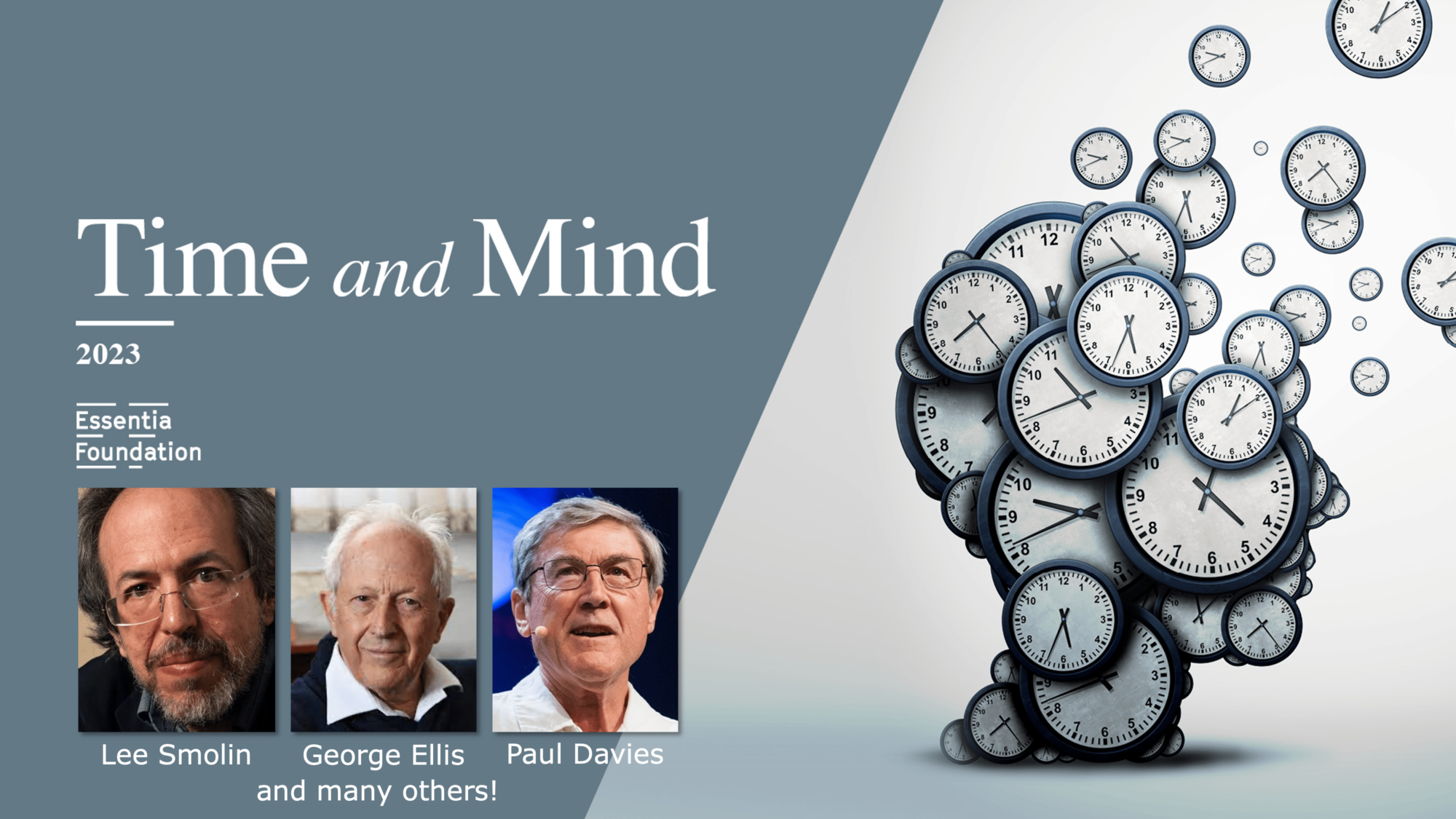Announcing ‘Time and Mind,’ a FREE online conference!
Reading | Physics and Psychology
![]() Prof. Bernard Carr, PhD | 2023-11-12
Prof. Bernard Carr, PhD | 2023-11-12

Reserve the dates November 30th and December 1st, 2023, on your calendars, for our online conference is happening again! And it is unmissable. This year the theme is Time and Mind. The event will be guest-hosted by Prof. Bernard Carr, PhD, Professor Emeritus of mathematics and astronomy at Queen Mary University of London. Luminaries such as Lee Smolin, Paul Davies, George Ellis and many others will be giving live, free-to-watch talks on the edges of science, where physics and psychology come together. CLICK HERE to watch the conference live!
The role of time in mainstream physics—as it arises in Newtonian theory, relativity theory, quantum theory and the 2nd law of thermodynamics—is relatively well understood. However, there is a profound mystery concerning the passage of time associated with consciousness. Many physicists maintain that this passage is purely a feature of mind, going beyond physics itself, while others argue that it points to some new physical paradigm, perhaps associated with the marriage of relativity theory and quantum theory. Certainly, the status of time in any final theory of physics remains unclear.
The possibility that physics may eventually accommodate and elucidate the nature of consciousness and associated mental experience suggests the need to address issues that are currently viewed as being on the borders of physics and philosophy. It also impinges on developments in neurophysics, cognitive science and psychology. So this is an interdisciplinary problem and this conference brings together experts in all the relevant fields. There are contributions from the physicists Bernard Carr, Paul Davies, George Ellis and Lee Smolin, the neurophysicist Alex Gomez-Marin, the cognitive neuroscientist Julia Mossbridge, and the psychologists Jonathan Schooler and Marc Wittmann.
Although the conference is organized by Essentia Foundation—which is associated with the philosophical tradition of Idealism—it shall cover a wide range of approaches. Our vision is to cover topics that are relevant to Idealism, but not to exclude alternative views from the conference.
CLICK HERE to watch the conference live and for free, without registration!



Essentia Foundation communicates, in an accessible but rigorous manner, the latest results in science and philosophy that point to the mental nature of reality. We are committed to strict, academic-level curation of the material we publish.
Recently published
Reading
Essays
Seeing
Videos
Let us build the future of our culture together
Essentia Foundation is a registered non-profit committed to making its content as accessible as possible. Therefore, we depend on contributions from people like you to continue to do our work. There are many ways to contribute.















